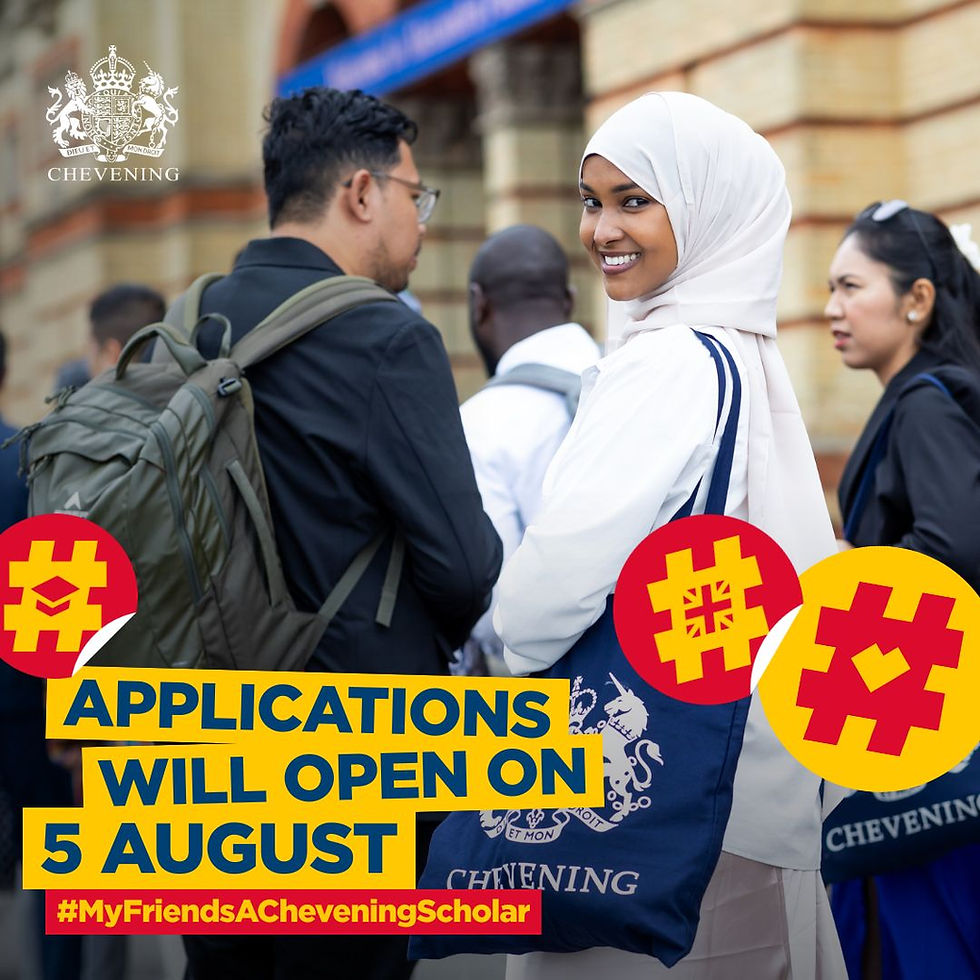British Academy Global Innovation Fellowships: Carnegie Endowment for International Peace 2026
- Omran Aburayya
- Aug 19, 2025
- 3 min read
If you are an early- or mid-career researcher in the humanities or social sciences based in the UK and eager to expand your skills, networks, and impact beyond academia, applications are now open for the British Academy Global Innovation Fellowships 2026 at the Carnegie Endowment for International Peace. This prestigious fellowship offers researchers the opportunity to embed themselves in one of the world’s leading think tanks, addressing complex global challenges such as climate change, democracy, security, and geopolitics.
🎓 Fellowship Summary
Location: Carnegie Endowment for International Peace (Washington DC, Singapore, or Beirut)
Sponsor: The British Academy in collaboration with Carnegie Endowment for International Peace
Research Level: Early- and mid-career researchers (postdoctoral and above)
Target Group: UK-based researchers in the humanities and social sciences (SHAPE disciplines)
Focus Areas:
Sustainability, Climate, and Geopolitics
Global Order and Institutions
South and East Asia
Middle East and North Africa
Security and Defence
Value & Coverage: Up to £150,000 (with 80% Full Economic Costing)
Award Duration: 12 months
Application Deadline: 24 September 2025, 17:00 BST
Fellowship Start Date: By September 2026 (with the possibility of an earlier start in March or April 2026)
Eligible To: UK-based early- and mid-career researchers in humanities and social sciences
⭐ Fellowship Overview
The Global Innovation Fellowships aim to provide UK-based scholars in the SHAPE community with opportunities to collaborate with leading international organizations, mobilize knowledge, and apply research to real-world policy challenges.
For 2026, selected fellows will be based at the Carnegie Endowment for International Peace, the world’s leading foreign policy think tank. Carnegie operates globally with expertise across Asia, Africa, Europe, India, the Middle East, Russia, and Eurasia. Fellows will gain hands-on experience in shaping policy discussions, contributing to international research projects, and engaging with leading practitioners in fields such as democracy, technology, climate change, and security.
🎁 Fellowship Benefits
Up to £150,000 funding for a 12-month fellowship
Opportunity to be based in Washington DC, Singapore, or Beirut
Direct collaboration with international policy experts and networks
Skills development in policy engagement, diplomacy, and interdisciplinary research translation
Enhanced visibility and recognition through the British Academy and Carnegie networks
Flexibility to start earlier in March/April 2026 with relocation support
✅ Eligibility Criteria
Applicants must:
Be UK-based researchers in the humanities and social sciences (early- or mid-career stage)
Demonstrate a solid understanding of the chosen focus area and its policy landscape
Show strong potential for contributing to policy-relevant innovation
Be available to commit to a 12-month fellowship abroad
Possess relevant language skills where appropriate (not mandatory)
📝 Application Procedure
Applications must be submitted online via the British Academy’s Flexi-Grant system.
Scheme Opens: 1 July 2025
Deadline: 24 September 2025, 17:00 BST
Applicants must outline:
Research focus and relevance to one of the five thematic areas
Proposed contribution to policy and academia
Plan for relocation (if opting for earlier start in March/April 2026)
📂 Required Documents
Completed online application form
CV with academic and professional background
Research proposal aligned with one of the five thematic areas
Supporting statement on policy engagement experience and career development goals
Institutional approval with costing details (FEC 80%)
Why Apply?
This fellowship offers a unique chance to bridge academia and policy at an international scale, while building long-term collaborations that can transform research into actionable solutions. Fellows will be at the forefront of addressing pressing global challenges, with the support of both the British Academy and the Carnegie Endowment for International Peace.



